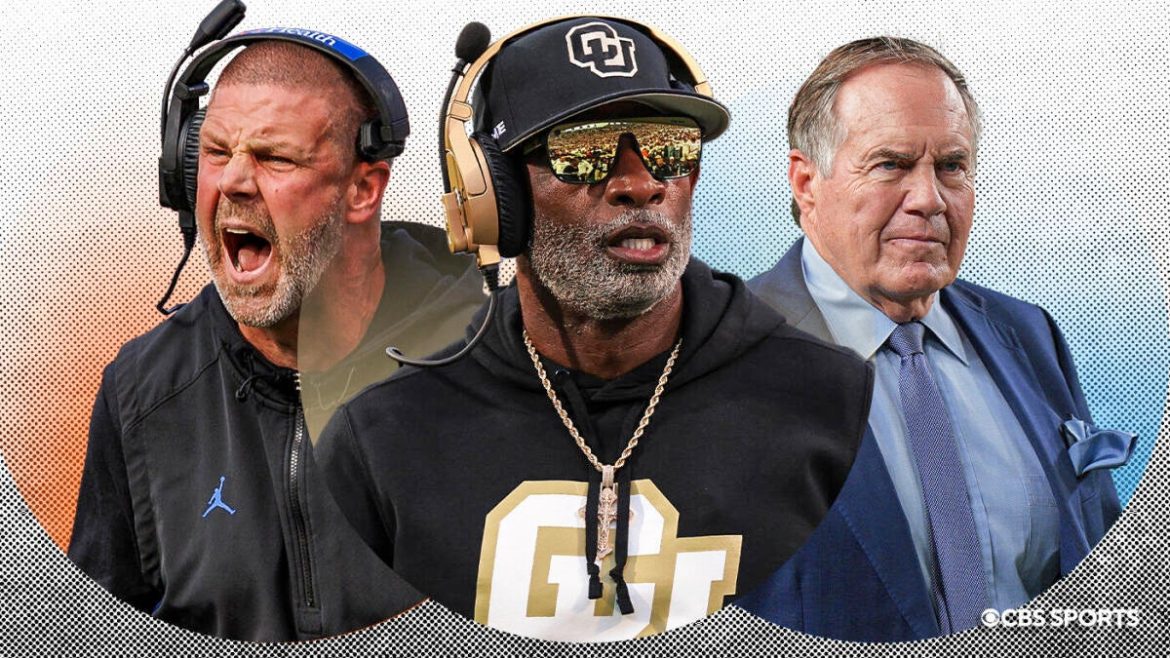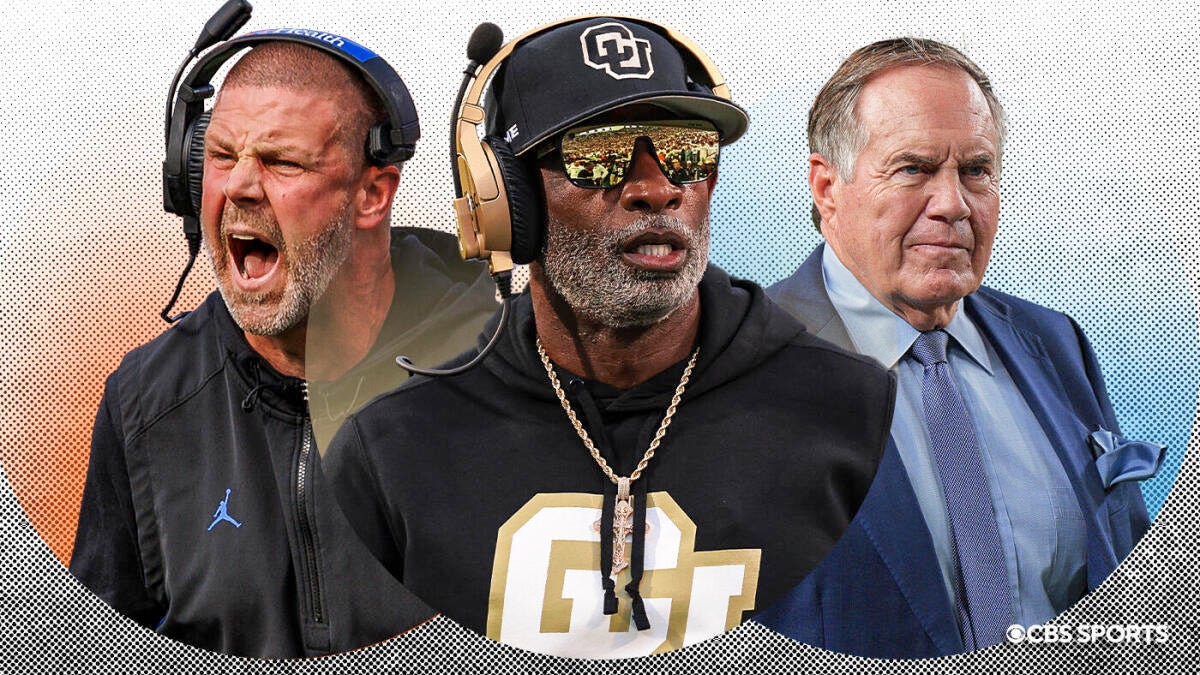Navigating the 2025 College Football Coaching Landscape: Rankings, Leaders, and Rising Stars
The 2025 college football season is shaping up to be an intriguing chapter, not just for teams and players but for the head coaches who define programs and influence the sport’s evolving narrative. Several analyses and rankings have surfaced from major sports media outlets, highlighting the leading figures in coaching, noteworthy newcomers, and shifts in reputations. This detailed overview delves into the top college football coaches as projected for 2025, the emerging storylines around iconic figures entering or expanding their collegiate coaching careers, and critical evaluations of coaches rising, holding steady, or slipping in the competitive hierarchy.
The Elite Tier: Champions of Consistency and Winning Pedigree
Ryan Day and the Ohio State Success Model
Ryan Day stands out prominently with an imposing record of 70 wins and 10 losses exclusively at Ohio State, yielding a winning percentage of approximately 87.5%, which ranks third all-time among head coaches with at least 50 FBS games. This remarkable consistency places Day in the elite echelon of college football coaching, where delivering sustained excellence forms the foundation of the highest regard. His leadership style, recruitment acumen, and ability to win under intense pressure have solidified his reputation as one of the top coaches to watch through 2025 and beyond.
Bill Belichick’s College Coaching Debut
Arguably one of the biggest coaching storylines is Bill Belichick’s transition from an illustrious NFL career—marked by six Super Bowl championships—to the collegiate level as the head coach at North Carolina. His reputation as a mastermind, tactical innovator, and championship winner has naturally generated enormous attention. Despite entering a new arena, early rankings place him solidly within the top tiers, such as a No. 10 placement in some ACC coach polls and top 10 mentions in broader rankings. The eyes of the football world will watch closely as Belichick adapts his NFL pedigree to college football’s unique challenges, potentially redefining coaching standards for the sport’s future.
The Rising and Controversial: Deion Sanders’ Complex Trajectory
Mixed Rankings and Performance Realities
Deion Sanders, aka Coach Prime, has been a polarizing figure in coaching ranks. After an initial surge in Colorado, transforming the Buffaloes’ record from a disappointing 8-loss season to nine wins, Sanders cracked various top 25 coach lists for 2025. However, questions remain about his overall consistency, with a career college coaching record noted as 40-18, including a modest 13-12 conference record at Colorado.
Several ranking analyses (including ESPN and CBS Sports) indicate he sits just outside the top 10, sometimes narrowly missing inclusion in the very elite group of coaches. This “snub” fuels debates about what defines top-tier coaching: Is it purely win-loss record, program transformation, recruiting ability, or broader impact on the game and culture? Furthermore, Sanders’ contract places him among the highest paid coaches at $10 million, reflecting institutional confidence and market endorsement despite ongoing scrutiny.
The Cult of Personality vs. Pure Metrics
Sanders’ rise has been buoyed by his charismatic leadership and high-profile persona, drawing recruits and attention to Colorado. Yet, critics argue that his win-loss record and conference play consistency lag behind those of elite contemporaries like Ryan Day or Belichick. His trajectory in coming years will be pivotal—if he consolidates wins and deepens conference success, his standing will undoubtedly ascend; without that, skepticism may persist, keeping him in the “almost but not quite” tier for some analysts.
The Broader Coaching Ecosystem: Flux and Subplots
Other Noteworthy Coaches and Rankings
Beyond the headlines of Day, Belichick, and Sanders, the rankings of numerous other coaches fluctuate with seasonal performances. Coaches such as Brian Kelly and Marcus Freeman receive attention for their team management and growth, with Freeman notably rising in the 2025 top 25 lists, emblematic of the new generation of coaching talent.
Conversely, some established coaches are experiencing setbacks, with figures like Baylor’s Dave Aranda facing sharp declines after a poor 3-9 season. The volatility in coaching fortunes highlights the ruthlessness of college football coaching — past laurels offer limited protection, and one losing season can significantly impact perception.
Conference-Specific Rankings and New Hires
Conference USA and the ACC have produced their own ranking narratives, emphasizing how head coaching hires and performances are being evaluated within these contexts. New arrivals are graded from excellent (Temple, Utah State) to less impressive (UCF), signaling how coaching changes reverberate through program success and recruiting momentum.
Belichick’s debut at North Carolina is part of a larger pattern where powerhouse football programs seek to recalibrate with historic or high-profile hires. Judging these hires not just on immediate wins but also strategic vision is a growing dimension in assessing coaching impact.
Challenges in Ranking Coaches: Subjectivity and Metrics
The Complexity of Ranking Coaches
Attempting to rank the top 25 college football coaches involves inherent challenges due to subjective criteria, varying program contexts, and the evolving nature of team rosters annually. Analysts such as Bruce Feldman acknowledge that the top three coaches were easier to place, but beyond that, nuanced factors—like recruiting success, program trajectory, and adaptability—complicate the process.
Balancing Records with Potential and Influence
Records, championships, and win percentages dominate the discussions but are only part of the story. Coaches like Deion Sanders and Bill Belichick show that influence, culture shift, and tactical innovation weigh heavily in ranking conversations. Some rankings, for example, consider the “Power Four” coaches (which include these prominent names), underpinning how elite coaching transcends mere statistics.
Conclusion: Coaching as the Heartbeat of 2025 College Football
The 2025 college football coaching landscape is a vibrant tapestry woven from established winners, dynamic newcomers, and legendary figures venturing onto fresh turf. Ryan Day’s sustained excellence at Ohio State upholds the highest standards of consistent performance. Bill Belichick’s NFL-to-college transition adds a compelling narrative of legacy and reinvention. Meanwhile, Deion Sanders embodies the modern coaching paradox where charisma and market value meet the relentless demand for wins and progress.
Understanding this multifaceted coaching ecosystem enriches our appreciation of the sport’s strategic core beyond the scores and highlights. The unfolding 2025 season will not only redefine team success but also recalibrate what it means to be a top college football coach in an era of heightened competition and scrutiny.





